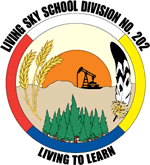Beginning the Journey: Beyond Topical Research
What Is Topical Research?
In the article Putting An End to Topical Research Jamie McKenzie describes topical research as...
...requiring little thinking and little imagination. It pays few dividends. It does almost nothing to prepare students for the kinds of thinking skills in provincial curricula.
- Go find out about diabetes. (the dreaded disease report)
- Go find out about acid rain.
- Go find out about Montreal. (the city or country report)
- Go find out about Charles de Gaulle. (biographical reports)
- Go find out about Virginia Woolf.
These assignments stress collecting rather than interpreting and analyzing. They beg the question, who cares? And indeed who really does - especially our students.
Students struggle with the mountains of information they have found on usually on the web resulting in 'low-grade synthesis what McKenzie calls smushing.
The standard report which requires students to simply look up and report facts will not engage them nor provide them with the critical thinking skills required by 21st century learners.
In the blog post, Why Students Want Simplicity and Why it Fails Them When It Comes to Research, the author, a college educator, contemplates,
Students come to our academic institutions after 15 or so years of research methods that may have always worked in their previous simple contexts. I need to know the names of Britanny Spears’ children…I use Google to find the answer. I need to know what year the War of 1812 started…I use Ask.com to find the answer. I need to know the reasons the American Revolution began…I use Wikipedia to find the answer. In these simple contexts there is always a right answer that can be easily obtained. If these strategies have served our students well, what do we think they’ll do when they get their first challenging research assignments?
Avoiding Topical Research: Redesigning Research Assignments and Projects
The following advice from Reintroducing Students to Good Research is well worth keeping in mind when creating research projects for students.
"To design effective research experiences for our students, we need to take into account the depth of their ignorance. Imagine being told you had to contribute a paper to a conference in a field other than your own. How would you know what kinds of research questions would be appropriate? What evidence would be considered authoritative and persuasive? What discourse conventions would you need to observe? How would you avoid totally humiliating yourself? Yet in a sense, that’s what undergraduates are faced with when asked to choose a topic and write a paper on it. They simply don’t know enough to do a good job without careful preparation. It’s no wonder, unfamiliar as they are with the production of scholarly knowledge, with very little sense of how texts and ideas come into being, that they often believe research is merely transcription."
As Joyce Valenza states, "topical research assignments are exercises in paraphrasing."
Simply going to the library or using the Internet to find facts about a topic does little to encourage learning in an information-rich world. Real life is about problem-solving and decision-making. It is more than reporting facts.
If our students are to become truly information literate teachers must learn to pose questions that require students to find, use and share information for an authentic, meaningful purpose: to make a decision, to decide between alternatives or to answer a why, which or how question.
As we come to an understanding of how student research has traditionally been done we can begin to focus on the instructional practices that must change to encourage student inquiry that is meaningful and authentic. The Saskatchewan Ministry of Education has focused on Resourced-based Learning as a foundation for authentic meaningful research. Over the past few years three inquiry-based frameworks have emerged from the resource-based learning tradition.

